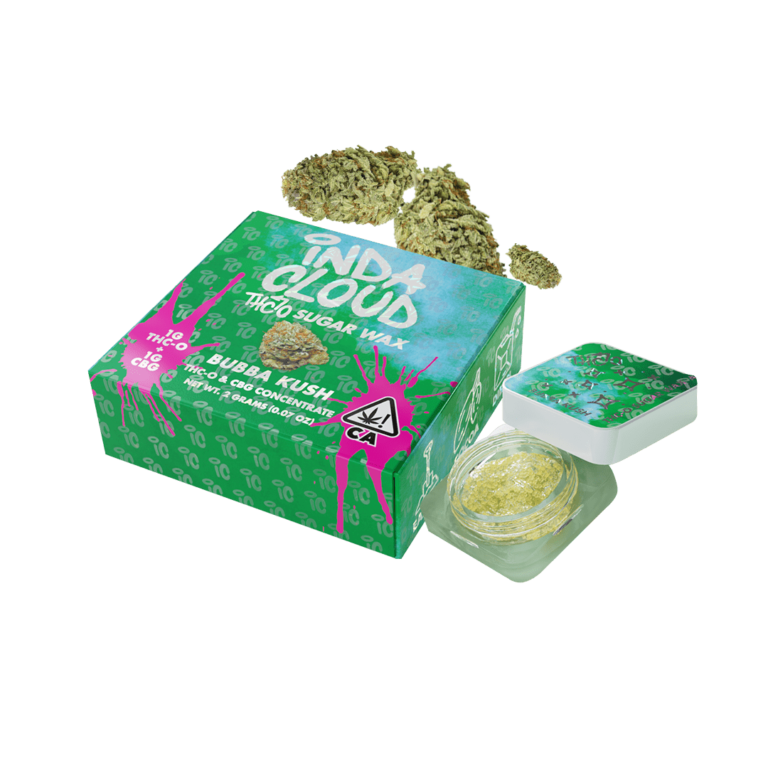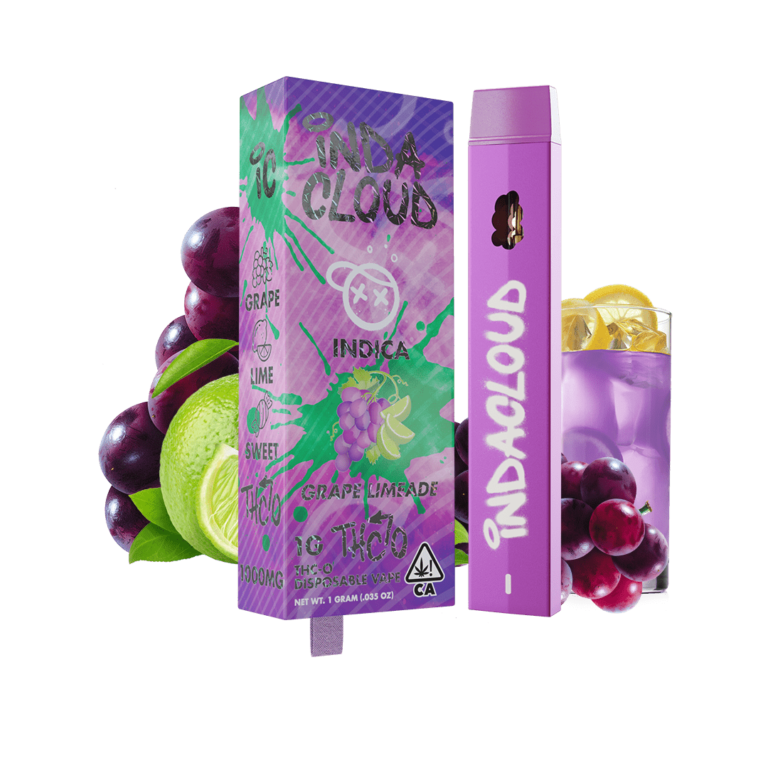What Is THC?
 Typically, the term “THC” refers to the Delta-9-THC Isomer. It is one of the 113 total cannabinoids on the cannabis plant. However, it is also possible to find a number of other THC isomers, such as tetrahydrocannabinol and trans-9-tetrahydrocannabinol. These are the various substances found in cannabis plants and are responsible for the psychoactive effects of the substance.
Typically, the term “THC” refers to the Delta-9-THC Isomer. It is one of the 113 total cannabinoids on the cannabis plant. However, it is also possible to find a number of other THC isomers, such as tetrahydrocannabinol and trans-9-tetrahydrocannabinol. These are the various substances found in cannabis plants and are responsible for the psychoactive effects of the substance.
 Delta-9-THC
Delta-9-THC
Among the cannabinoid compounds found in cannabis plants, Delta-9 Tetrahydrocannabinol online, or D9 THC, is the most prevalent. The delta-9 version of THC is significant amounts of psychoactive effects, including the sensation of euphoria as well as a buzz of recreational. It is also known as a as a pain alleviation. However, Delta-9 THC has other adverse effects that must be considered prior to using the product.
Delta-9 THC is used to treat a variety of medical conditions, including cancer, multiple sclerosis, and anxiety. It can also be utilized to boost appetite in HIV/AIDS patients as well as to treat chemotherapy-induced nausea. It is also an effective natural sleep aid.
While it isn’t federally legal in the United States, delta-9 THC products are legal in some states. It is not strictly controlled by the FDA therefore, it’s an undefined area when it pertains to legality. It is best to purchase Delta-9 THC from a reputable seller.
If you are looking for the finest Delta-9 THC products, it is a good option to purchase them from a legal cannabis online store. You should select products that are lab-tested for quality and potency. It is also a good idea to purchase delta-9 THC from a reliable, marijuana-friendly doctor.
The effects of Delta 9 THC differ from those of Delta 8. Although both forms of THC are able to produce a similar “high,” the delta-9 product is more potent.
It is possible to feel dizzy, sweaty or racing your heart when you smoke delta-9 for example. There is a possibility of dehydration , too.
The effects of delta-9 THC vary depending on your body’s weight and how long you’ve been taking it for. It’s a good idea use smaller doses to avoid an overdose.
THCB
Of the numerous cannabinoids available that are available, THCB is the best of all. It is a natural compound that has the same properties as conventional THC. It is a chemical that interacts with the endocannabinoid system of the brain and is believed to be an analgesic and pain relieving agent. It regulates sleep patterns.
The structure of the THCB molecule is very like THC. It contains four carbon atoms. It is however more potent at CB1 receptor, which is the brain’s most potent cannabinoid. Additionally, THCB has a butyl group that is unlikely to cause any safety concerns.
THCB is relatively new on the market. It hasn’t been extensively studied. While some scientists believe that THCB could have a range of psychoactive effects greater than THC however it isn’t yet clear if they are any more potent.
THCB is also known for its anti-inflammatory properties. Early research suggests that THCB may help reduce discomfort and improve sleep.
THCB is available in tinctures, vapes, and edibles. It can also be purchased in distillate form. Although it is reported that THCB is slightly more potent than THC at the CB1 receptor The differences aren’t major.
THCB has been likened to delta 9 THC which is a less psychotropic type of THC. It is also thought to be more effective at decreasing inflammation.
THCB is not suitable for all people, and it is suggested that you consult a doctor or healthcare professional prior to taking it. THCB has been proven to cause some unwanted side effects, such as dry mouth, Delta 9 THC drowsiness and red eyes. It is recommended to begin slowly and gradually increase your dose over time.
THCA
THCA which is the precursor of THC is originated from cannabis. Unlike THC, THCA is not psychoactive, and has been found to have several therapeutic properties.
Research has shown that THCA has anti-inflammatory properties. It could also provide neuroprotective benefits. It could also be an effective treatment for fibromyalgia arthritis as well as other health conditions.
THCA is believed to have a positive effect on appetite, nausea and pain. It may also help prevent neurodegenerative diseases. However, the role of THCA in the endocannabinoid system is not clear.
THCA is found in all varieties of cannabis. In fact, THCA is so prevalent in cannabis that it is often referred to as the “mother of all cannabinoids.”
THCA is utilized in a variety of ways. For example, THCA can be extracted and then dabbed or vaporized. It can be used in conjunction with CBD and THC to increase the bioavailability.
Federal law doesn’t classify THCA as a controlled substance. However the sale of THCA could be investigated under the Federal Analogue Act.
Unfortunately, there isn’t much research into the effects of THCA on humans. The most effective method to determine its safety and effectiveness is to study it in human subjects.
THCA has been shown to possess some therapeutic properties. However it is still a matter of research before it can be considered a useful drug. There have been reports that THCA has been used to treat fibromyalgia and other ailments. In addition to its therapeutic properties, THCA has been found to be safe.
Although THCA isn’t a very well-known medicine in the United States of America, there is evidence that suggests it could be safe to consume. It is recommended that you consult your physician prior to adding THCA to your diet.
Side effects of THC strains that are potent
It doesn’t matter if you’re buying marijuana for medicinal or recreational purposes, it’s essential to be aware of possible side effects from high-potency THC strains. There is increasing evidence that THC can have adverse health effects.
Some studies suggest that high-potency THC strains may increase the likelihood of developing psychosis. More research is required to determine the exact effect these strains have on your health.
Some research has suggested that regular consumption of these products could cause increased anxiety and depression. Young people may be at greater chance of developing a mental disorder if they are exposed to high-potency products.
Suicidal ideation, attempts as well as suicide are more likely. Regular use of cannabis may also have a negative impact on your lung and heart health. The American Lung Association has called for further research into the effects of marijuana on the lungs.
THC can also affect your mood as well as memory, appetite and other aspects of your life. It can also cause irritation to your eyes. Some eye drops may cause dryness after use.
There is some evidence that higher doses of THC can result in a higher degree of memory impairment. THC can bind to cannabinoid receptors within the brain. This could reduce the amount of CBD in your system.
Consuming cannabis that is high-potency regularly can increase the risk of having a psychotic episode. It is possible that you’ll experience some of the usual negative effects associated with THC like headaches and paranoia, but these symptoms aren’t likely to last long.
Another potential side effect is Cannabinoid Hyperemesis Syndrome (CHS) which can cause abdominal cramps, dehydration, and nausea. It is important to increase your dose slowly over time to prevent this condition.
THC-based medication may not be as effective as natural THC or cannabis
Medicinal Cannabis is also known as marijuana, is a substance derived from the cannabis plants. It is a drug that can be used to treat symptoms of cancer. It can be used in different ways, but cannabinoid-based medications are most likely to be prescribed by a specialist physician.
Cannabinoids are a class of 21 carbon compounds. They are found in cannabis plants. FDA approved them to treat the side effects of cancer treatments. They are also thought to have curative properties.
Cannabinoids can be produced in the body and stored as fat in the adipose tissues. They interact with the hepatic Cytochrome P450 enzyme system. They are used to treat nausea and vomiting that are caused by chemotherapy. They may also have analgesic properties. However, it is not clear whether they are safe and effective.
There are several pharmacokinetic studies that have been conducted. These studies are designed to study the effects of different cannabinoid doses on various cancer-related symptoms. Certain studies did not show significant weight gain. Other studies have found no increase in risk of certain cancers.
Two studies studied the effects of oral Delta-9-THC in the treatment of pain from cancer. The results of these studies showed analgesic effectsthat were similar to that of codeine. The doses used were higher than those used in the group that was not controlled. The analgesic effect was evident for 7 hours. A third study involved patients who were taking dronabinol in combination with megestrol acetate. The combination was then compared to megestrol alone.
There aren’t many clinical trials that have randomized patients with cannabinoid-based medicines to test their appetite. While the PDQ cancer information summary summarizes the research however it does not provide any formal recommendations. It is maintained by the Integrative Alternatives to PDQ and Complementary Therapy Editorial Board, an organization that is independent that is part of the National Cancer Institute.